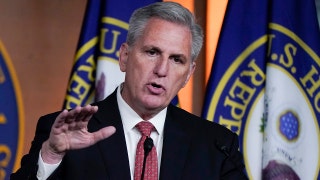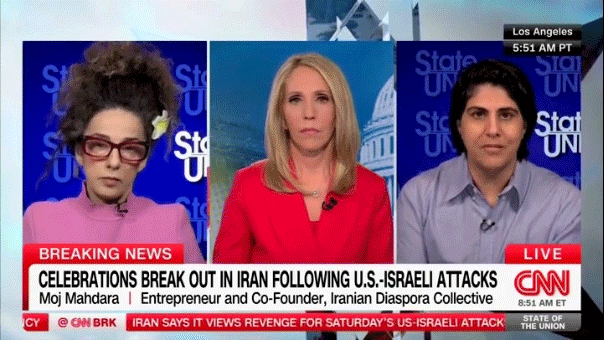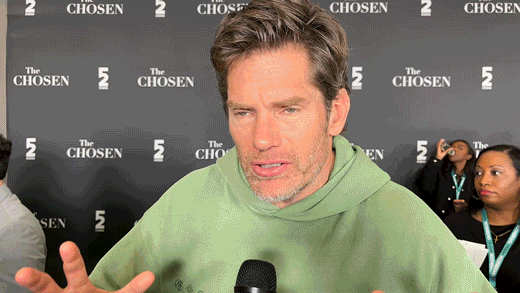Author of 'Nunes memo' speaks out on media's panned Russiagate coverage
GOP attorney Kash Patel was at the center of a significant moment in the Russiagate saga as author of the 'Nunes Memo' and he accuses the mainstream media of spreading a 'complete lie.'
The Republican lawyer behind a key moment in the Russiagate saga may appreciate there has been a reckoning of sorts with how the media so badly botched the story, but he's not impressed that only now some Americans are waking up to what he calls "a complete lie."
Kash Patel was the primary author of the 2018 memo from then-House intelligence committee Chairman Devin Nunes, R-Calif., about significant flaws in the sprawling Trump-Russia investigation, in the midst of what could only be described as the feverish Russia coverage that dominated the Trump administration.
But the notion that former President Trump was implicated in a diabolical conspiracy with the Kremlin has shriveled down to nothing, and the Nunes memo and other narratives once frowned-upon by the left have retroactively earned journalistic credibility as a result. Patel, who helped craft the memo as a senior committee aide, will take what he can get, but wishes there wasn’t the need to reassess the Russiagate narrative in the first place.
"If they had gotten it right in the first place, when Devin and I and so many others were actually putting out the truth, instead of serving as a disinformation machine for the left-wing agenda, there would be no reassessment," Kash Patel told Fox News Digital. "They could not have done their work in the deep state without their partners in the mainstream media, who are part of that deep state."
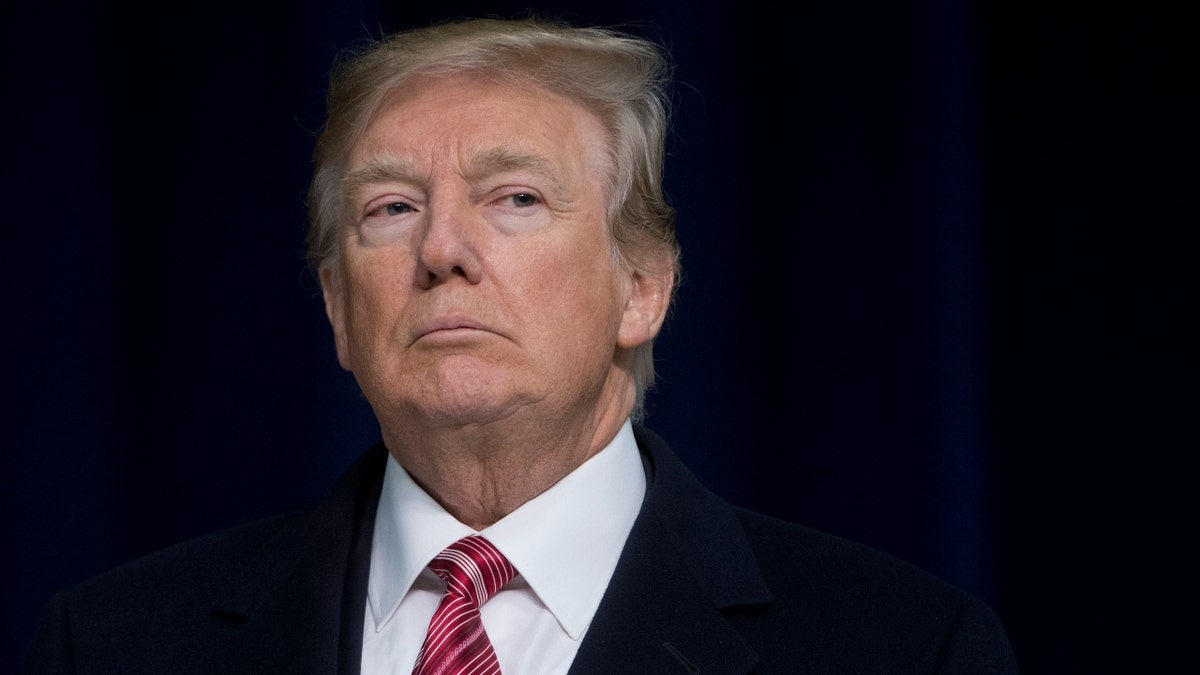
Media watchdog the Columbia Journalism Review (CJR) recently published a wide-ranging retrospective of the media's Russiagate coverage that examined several news organizations and their various roles throughout the Trump-Russia saga. ( SAUL LOEB/AFP via Getty Images))
At the time, then-CNN analyst Jeffrey Toobin called the memo a "total farce," MSNBC and CNN pundits uniformly dismissed it as a "dud," future Biden press secretary Jen Psaki called it a "nothing burger," and liberal cable news programs spent countless hours partaking in similar groupthink. Ironically, Patel believes liberal viewers who consumed nonstop coverage painting Trump as a Russian asset are likely to recognize their preferred pundits were in the wrong.
But amid a reevaluation of Russiagate since the collusion charges fell flat, the Columbia Journalism Review, the in-house publication of Columbia's prestigious journalism school, produced a lengthy retrospective last week of the media's Russiagate coverage that examined several news organizations and their various sins throughout the saga.
LIBERAL COLUMBIA JOURNALISM REVIEW OFFERS SCATHING INDICTMENT OF NEW YORK TIMES' RUSSIAGATE COVERAGE
The New York Times’ coverage of the Nunes memo came in for sharp criticism from the report's author Jeff Gerth, as the Gray Lady called it "politically charged," put a focus on "outraged Democrats," downplayed the memo’s allegation of the discredited Steele dossier’s role in obtaining surveillance on Carter Page and piled on "scathing" criticism from the left. The Washington Post's Aaron Blake later acknowledged the Nunes memo had been largely vindicated, particularly in its scathing assessment of how FBI and Justice Department officials obtained secret surveillance warrants.
Gerth noted the Democrats’ counter memo was far more favorably covered by the Times. Despite Gerth’s criticism, the Times told CJR that it still stands by its reporting on the Nunes memo.
The four-page memo alleged intelligence abuse by the DOJ and FBI during the 2016 Trump campaign, citing a high-ranking government official who said both agencies would never have sought surveillance warrants in the absence of the disputed anti-Trump dossier funded by Democrats. Despite the slanted coverage it received, Patel doesn’t expect the Times to admit any botched coverage of the memo – or Russiagate in general – anytime soon.
"They'd have to admit they got a Pulitzer for putting out false information," Patel said, referring to the 2018 Pulitzer Prize for national reporting that the Times and Washington Post shared for coverage of alleged collusion between the Trump campaign and Russia.
"No side wants to say they got it wrong," Patel said. "They definitely don’t want to do it publicly, and they don't want to do it on the most consequential oversight investigation in modern U.S. history."
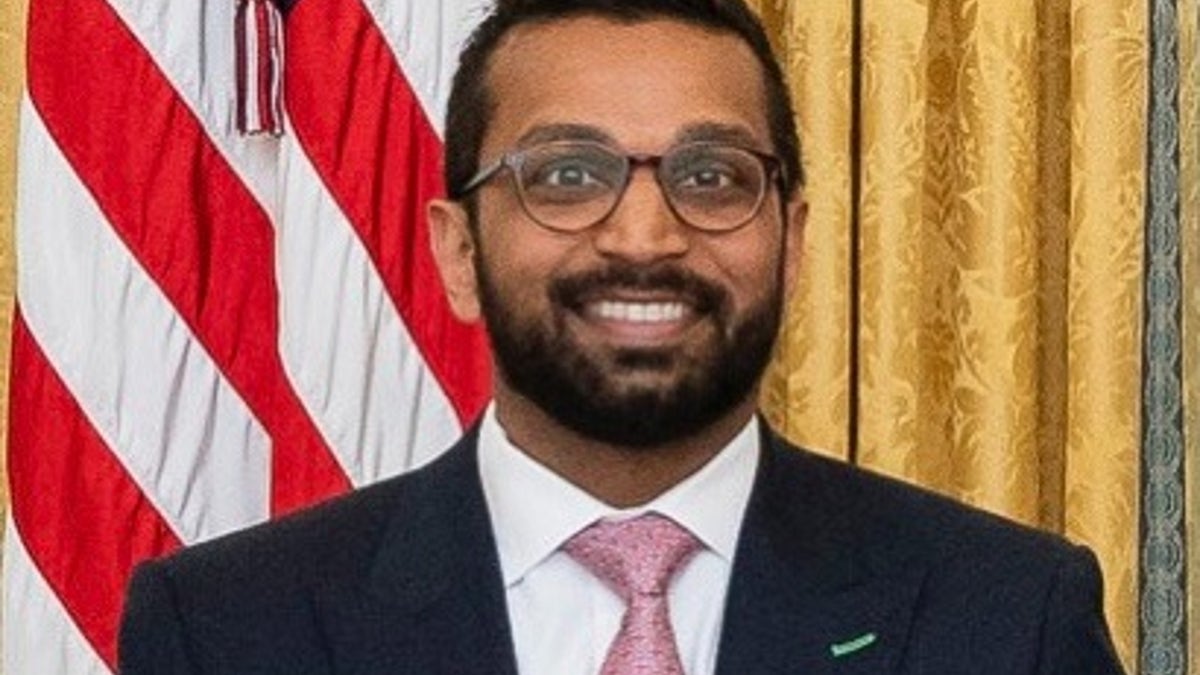
Kash Patel was lead investigator on the Russia-gate investigation for the House Permanent Select Committee on Intelligence. During the Trump administration, he served as chief of staff at the Department of Defense and as deputy assistant to the president, among other senior national security posts. He is a senior fellow at the Center for Renewing America.
Patel believes Democrats were essentially spoon-feeding "misinformation and disinformation" to news organizations.
"Politicians like Adam Schiff and [Eric] Swalwell and company were leaking to them misinformation and disinformation that they knew The New York Times and the Washington Post… would run with because there was a narrative to attack then President-Trump," he said, adding that the Times and Post got "the biggest award on Planet Earth in journalism by essentially cheating and lying."
Trump has since filed a defamation lawsuit against the Pulitzer Prize Board for standing by "totally debunked" coverage.
"I think the fact that President Trump has so loudly called for the rescinding of their awards and, you know, trying to restore credibility to journalism, they can't come out and say, ‘We got this wrong,’ because then I think it would lead to the avalanche in the public vision of their credibility just cratering," Patel said.
PULITZER COMMITTEE SILENT AFTER WOODWARD'S SCATHING ASSESSMENT OF MEDIA'S RUSSIAGATE COVERAGE
Patel said getting facts in front of the American people should be the priority.
"Half of America, over the last five years, has believed and still believes Donald Trump is a Russian asset. And now, finally, we are breaking through to at least the middle of the spectrum that said, ‘OK, wow, this major piece shows that what I was reading, and what I was deciding my life on, and what I was voting on was essentially a complete lie," Patel said. "If we can do that and carry that message, that's more important to me than ever focusing my efforts on what The New York Times does with their historical awards."
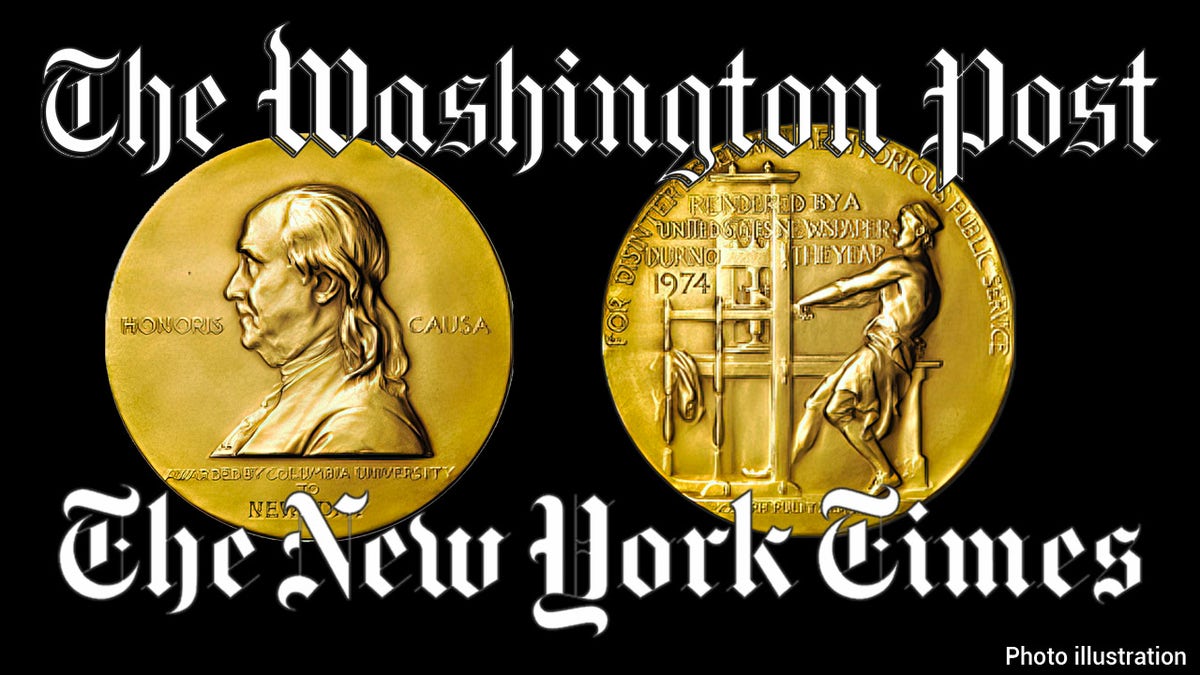
The Pulitzer Prize Board has stood by its 2018 National Reporting prizes given to The New York Times and Washington Post for coverage of alleged collusion between the Trump campaign and Russia. (Photo illustration)
J. Peder Zane, a right-leaning columnist for RealClearPolitics who once wrote articles for the New York Times as a clerk in its writing program, wrote that the newspaper was "consciously seeking to deceive its readers."
The lack of coverage of skeptical voices about the Russia investigation, such as former FBI agent Peter Strzok's heavy doubts about the validity of the collusion allegations early on, was one of the major journalistic failures Zane identified in the Russiagate saga. His colleague Aaron Maté referred to it as "promoting a Trump-Russia collusion narrative and sidelining countervailing facts."
"The Times is suspicious of Trump," Zane told Fox News Digital about how he felt the paper went wrong.
"The Times embraces the idea that he did something. The Times uses anonymous sources in particular who clearly have an agenda, who clearly misled them about key aspects of this investigation, and once it was shown that they were false, the Times both failed to correct the record and failed to acknowledge who those anonymous sources were," Zane added.
Zane said the Times knows "exactly what they're doing," and echoed Patel about the media's intentions.
"It's devious… A hallmark of their Trump-Russia coverage was incredibly skillful language that ultimately misled the reader," he continued. "My whole point is that the New York Times and the Washington Post and the New Yorker and MSNBC, their disservice is to their liberal and left-wing leaders whom they are misleading."
Patel called the CJR takedown of mainstream Russiagate coverage a "valiant effort" to help spread the truth after all these years, but feels it was incomplete.
"If they really wanted to do an actual reassessment, they would call the people who, you know, wrote the Nunes memo," Patel said. "We’re necessary to capture this story."
CJR executive editor Kyle Pope did not immediately respond to a request for comment.
Patel wasn’t surprised the media covered the memo like some sort of "political hit piece" and said he knew the truth would eventually prevail.
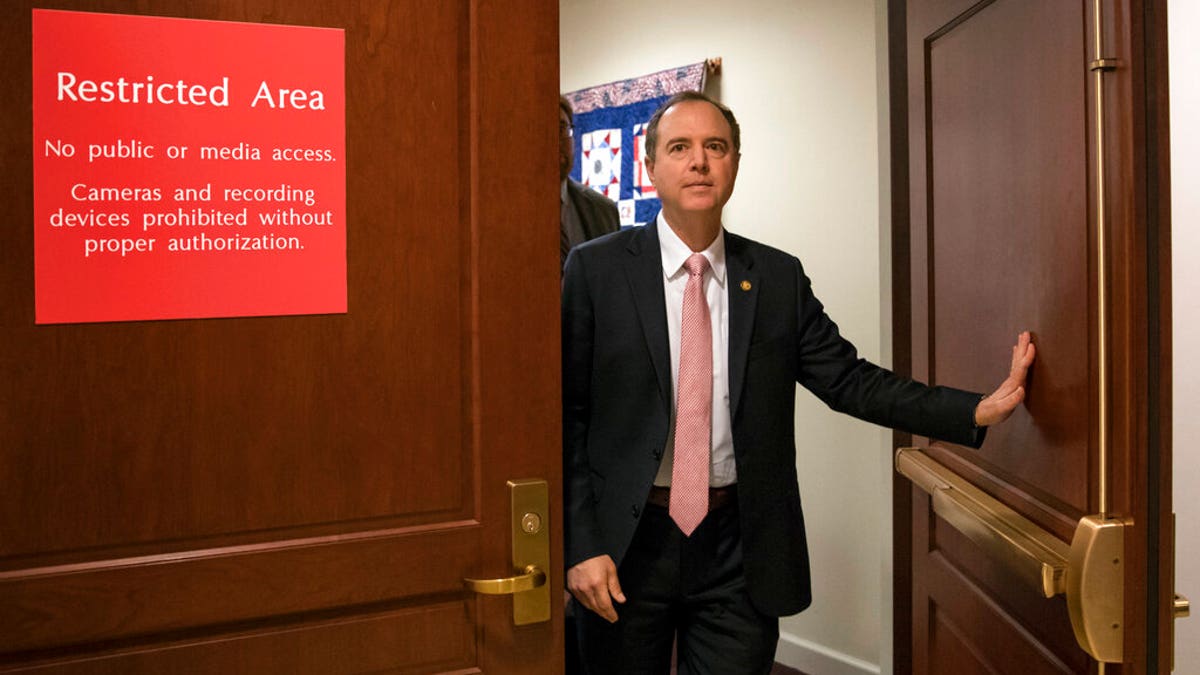
In this March 22, 2018 file photo, Rep. Adam Schiff, D-Calif., ranking member of the House Intelligence Committee, exits a secure area to speak to reporters, on Capitol Hill in Washington. (AP Photo/J. Scott Applewhite)
"We just said, look, when the information comes out, backing it, as the IG and many others have now confirmed, there isn't a single word in there that's wrong," Patel said.
"I think those viewers that are so hard core and dialed in on the MSNBC front, and certain others, CNNs of the world, I think they know. I think privately, they're definitely saying it," he added.
"They've been saying it to themselves because they spend so much time on it. They know how the Russia investigation actually unfolded," Patel continued. "Will they ever publicly admit it? No, I don't think so."
CLICK HERE TO GET THE FOX NEWS APP
He feels newsroom leaders at liberal organizations knew the truth, too.
"They knew what the information was because it was being leaked to them directly. And how do we know that? Because of the details of the reporting that was put out there. So what they did, though, was, I think, almost worse than what the FBI did to that lying to the FISA court," Patel said. "They went in on the lie in journalism to portray a political target they hated so much that they were willing to stake their reputations and their and their fan base and say, 'Whatever we print is the truth, even though we know it's a lie.’"


